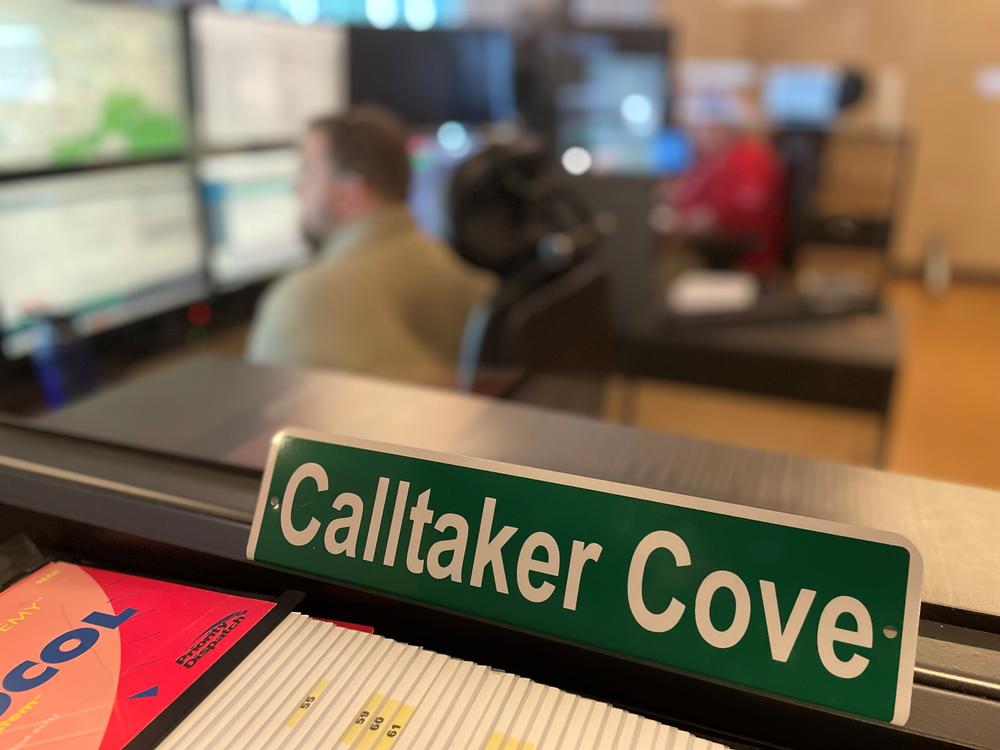
Caption
A sign reads "calltaker cove" inside the Cobb County 911 call center. On July 16, the national 988 call line will be operational, taking calls for mental health emergencies and removing some of the burden from traditional 911 centers.
Credit: Ellen Eldridge / GPB News

